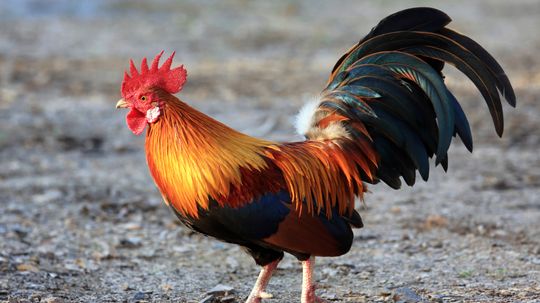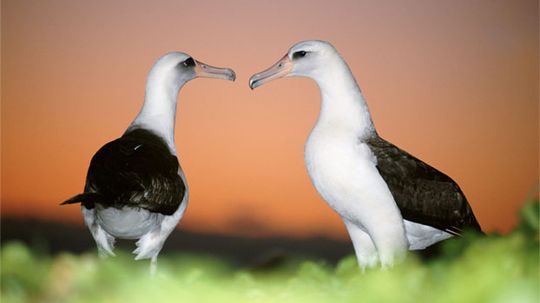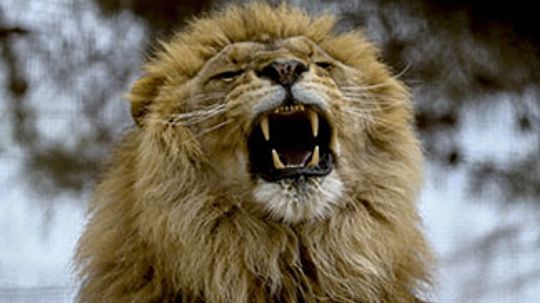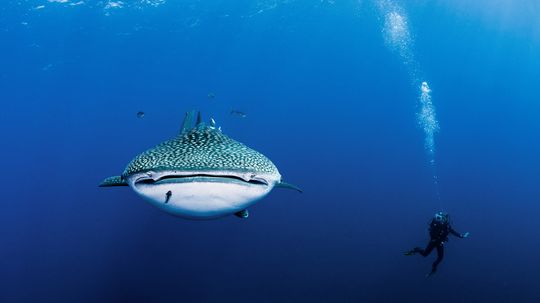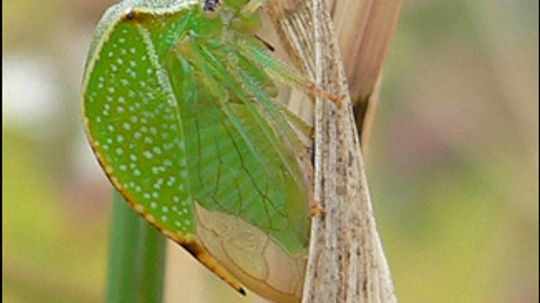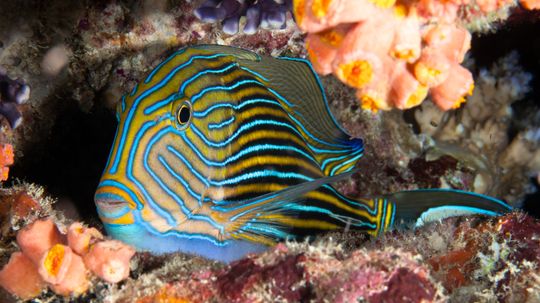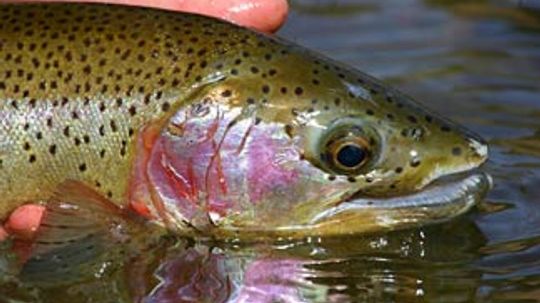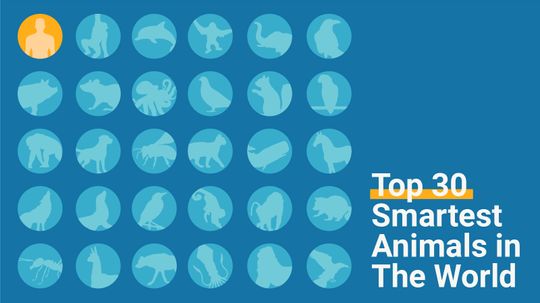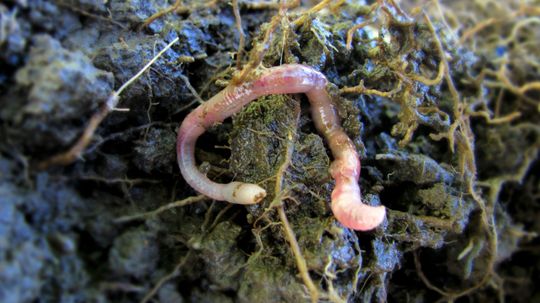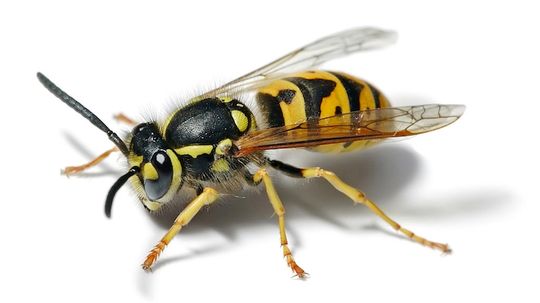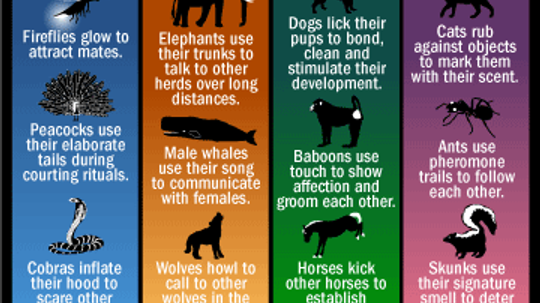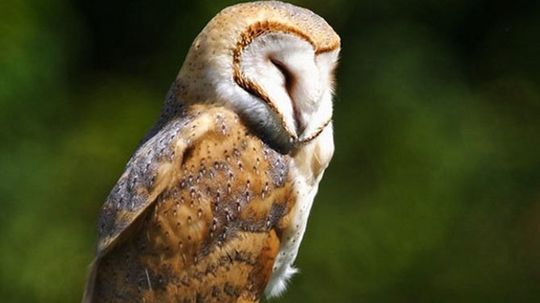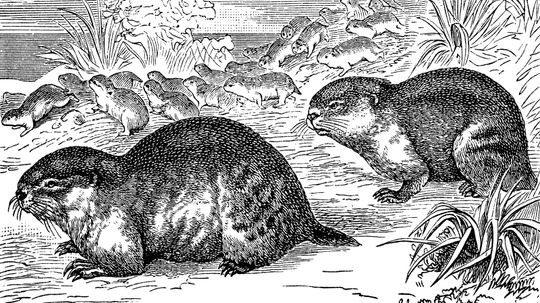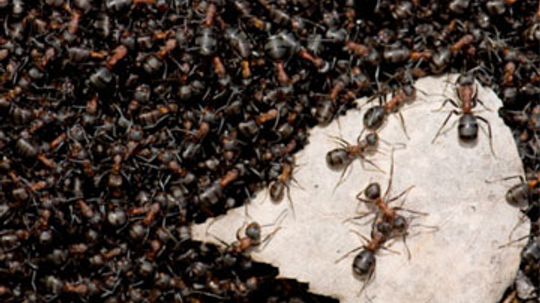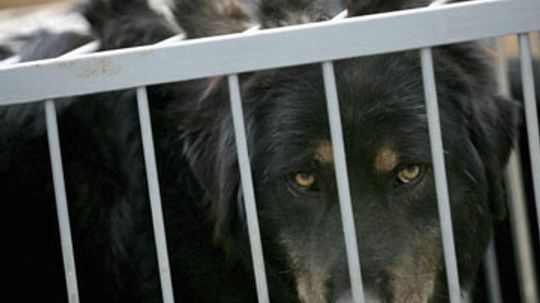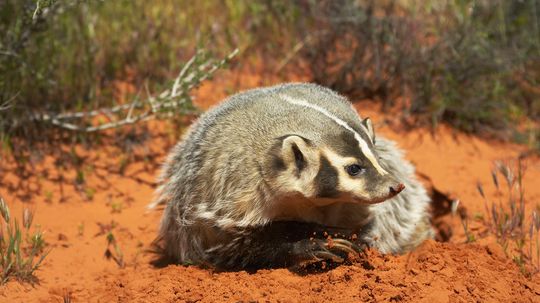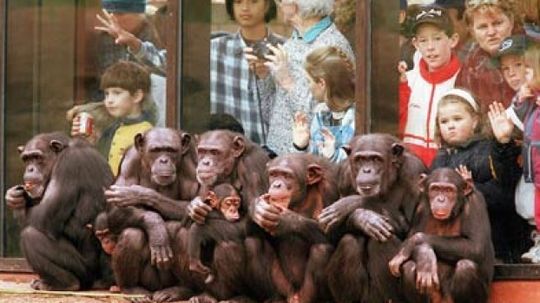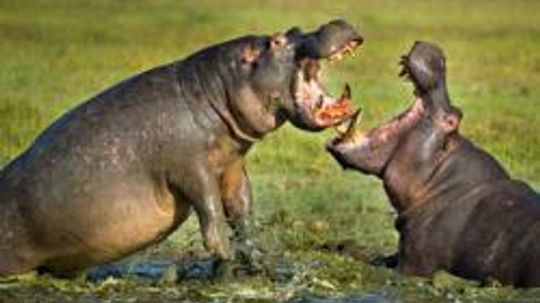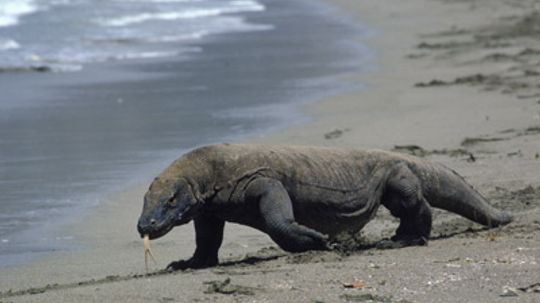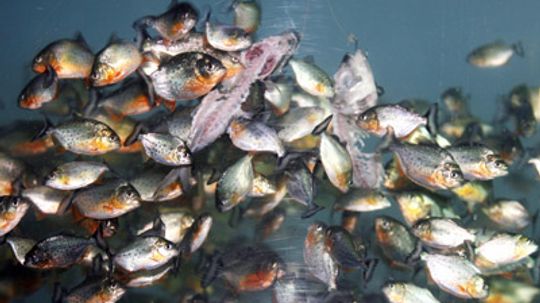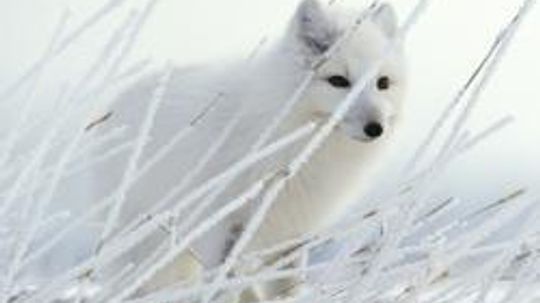Animal Facts
Learn about some of the strange and unusual facts and terms in the animal kingdom.
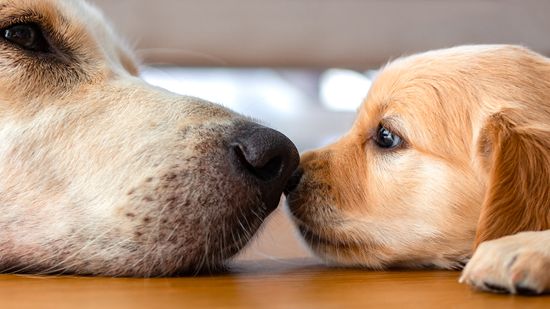
What Is a Group of Golden Retrievers Called? Sounds Angelic

What Is a Group of Pugs Called? It's Honestly Cartoonish
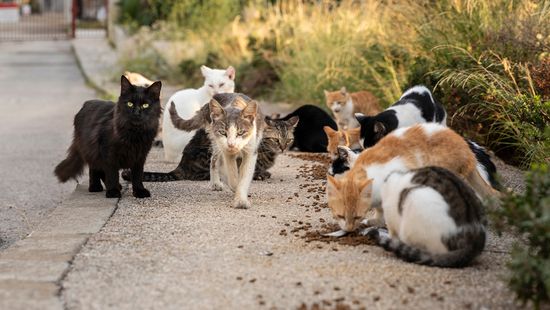
What Is a Group of Wild Cats Called? Depends on the Type of Cat
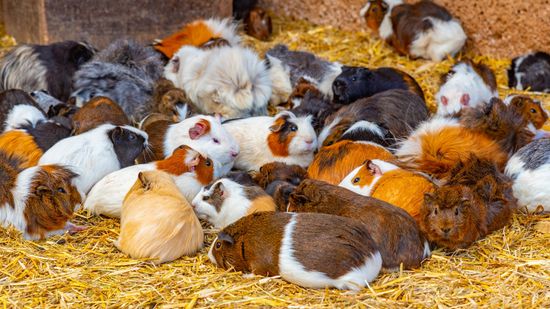
What Is a Group of Guinea Pigs Called? It's Bigger Than You'd Expect
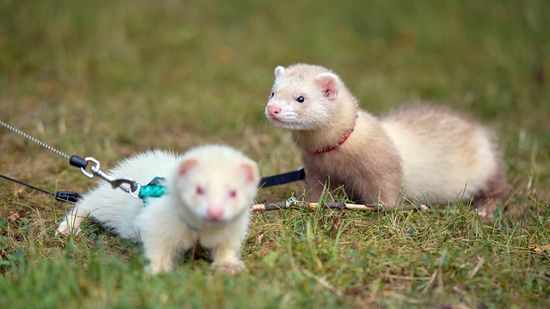
What Group of Animals Is Called a Business?
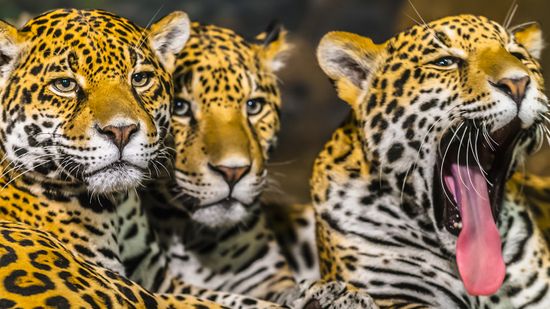
What Is a Group of Jaguars Called? Sounds Shady...
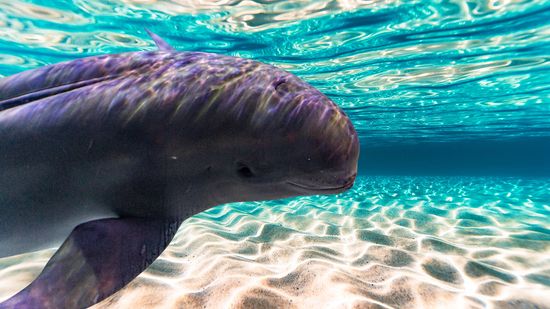
Yangtze Finless Porpoise: The World's Only Freshwater Porpoise
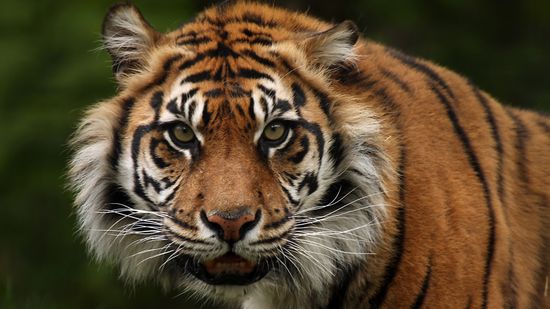
Sunda Tiger: A Critically Endangered Subspecies in Sumatra
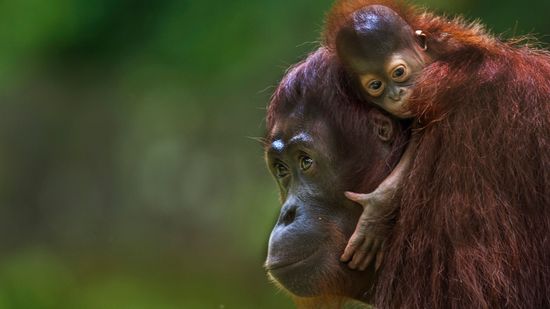
The Sumatran Orangutan Faces Large-scale Habitat Loss

12 Scariest Dinosaurs You'd Want to Avoid While Time Traveling
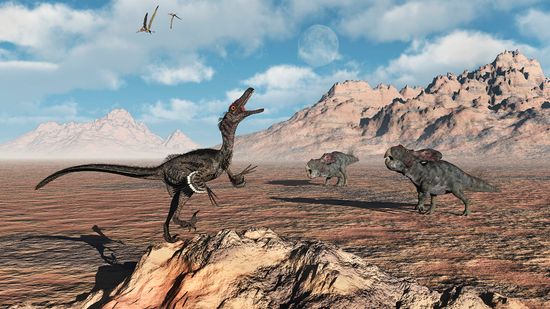
The Smartest Dinosaur (and 9 More Clever Prehistoric Reptiles)
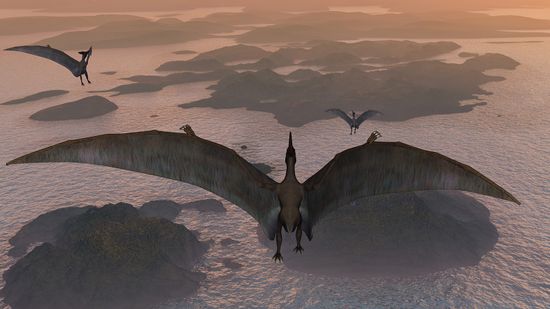
Pteranodon vs. Pterodactyl: Comparing Non-dinosaur Species
Learn More / Page 5
You might know that a cheetah can run 70 mph, but did you know that hens can change sex or that leeches have three sets of jaws? Here are 10 really strange animal facts.
By Julia Layton
These canines are more than just your average furry friends: They can mean a whole lifestyle change for some people.
By Tom Harris
One animal procrastinates. Another is famous for making out. Yet another might remember faces better than you do. Our nonhuman cohorts are capable of much more than instinct and action. Here are 10 captivating examples.
Advertisement
What does it take to be a successful race horse? Learn about the best jockeys with this famous racehorse countdown.
Animal have some amazing skills. Read on to see which animals have the most amazing skills.
By Marie Look
These animals aren't treehuggers in the environmental activist sense. They have to hold on for dear life! Meet the top 10 tree-dwelling animals.
Advertisement
Do you love to fish but love the environment too? Check out these five tips for sustainable fishing!
Humans aren't the only animals that can count, use logic, make tools or form lasting bonds with others. Meet 10 of the smartest creatures in the animal kingdom.
By Jonathan Strickland, Melanie Radzicki McManus, Francisco Guzman & Austin Henderson
You'd think that earthworms are good for fish bait and little else, but that isn't the case at all. Earthworms are the engines that help local ecosystems run. They aerate soil, help facilitate plant composition and so much more.
By Josh Clark
Advertisement
You don't have to live in some exotic, tropical environment to find a venomous critter. They live all over the world, and some may be closer than you think.
Your kitten's strange faces and chirps might seem perfectly intelligible, but how much meaning can you really read into them? Can animals display happiness, sadness, empathy or fear?
All animals might not be able to speak, but they certainly have other ways of communicating. How do animals pass on information to their own species, and how do they pick up cues from other members of the animal kingdom?
Sleep might seem pretty simple, but scientists are still scratching their heads over questions surrounding the slumbering state. What does sleep mean to a whale, a brown bat, a migratory bird or even an invertebrate?
Advertisement
Distressed birds will peck out their feathers until they expose their flesh to infection. Whales will die stranded on beaches for no obvious reason. But do animals willingly end their own lives?
Whether you're talking about a swarm of bees buzzing about, a cluster of butterflies sucking down nectar or a nest of cockroaches hidden in a corner of your house, insects are really plentiful. How plentiful?
By Chris Jones
Most of us know not to pet an angry dog with a foaming mouth, and that perhaps snuggling with a bat isn't the brightest rabies-prevention plan. But how does rabies choose its victims, and what can it do to humans?
Coyotes and badgers? This unlikely partnership is actually a surefire thing when it comes to catching a tasty dinner.
Advertisement
As you visit each amazing exhibit at your local zoo, do you ever feel a twinge of guilt or remorse when watching these enclosed creatures? Are zoos helping or hurting animals?
Many kinds of animals are native only to Africa, such as gorillas, chimpanzees, zebras, giraffes, hippopotamuses. Take a gander at these amazing African animals and see how many you recognize.
By Marie Bobel
The next "CSI" spin-off may not take place at a zoo or wildlife preserve, but there are real-life detectives working to solve cases of the furry, feathered variety.
A Komodo dragon's bite is a deadly cocktail of bacteria and venom. But is it worse than a cobra's bite? Who would win in the hypothetical battle of lizards versus snakes?
By Julia Layton
Advertisement
Ever since Teddy Roosevelt witnessed a piranha feeding frenzy, the fish have been known as fearsome predators. But can they really strip a cow to the bone?
By Julia Layton
Arctic animals, such as polar bears, puffins and narwhals, have developed amazing adaptations to be able to survive in the arctic tundra. Check out these Arctic animal pictures to catch a glimpse of animals that you'll probably never see up close.
By Marie Bobel
